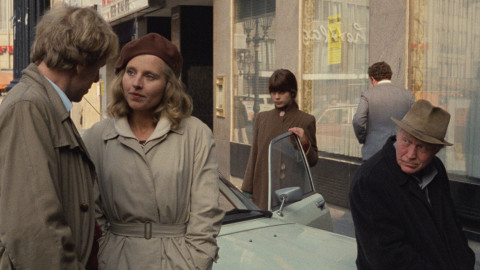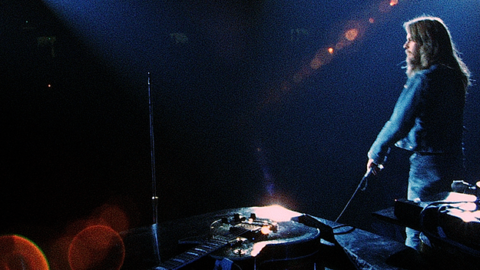Photo Essay: Honeysuckle Rose
Honeysuckle Rose screens Saturday, February 9 at Film Society of Lincoln Center as part of Film Comment Selects. A Q&A with director Jerry Schatzberg follows the screening.
The opening shot of Jerry Schatzberg’s Honeysuckle Rose feels almost mythic in evoking the American West. A large Stetson obscures the face of the actor, taking up half the screen. Then his body shifts… to reveal him completing a golf swing. Charmingly grizzled, Willie Nelson plays Buck, a country singer and representative of the New West. Sure, Buck may wear a Stetson and sport a bushy beard, but Nelson also brings a sense of leisure to the outward cowboy persona. He wears a partially unzipped tracksuit, and his golf playing implies an unhurried existence.
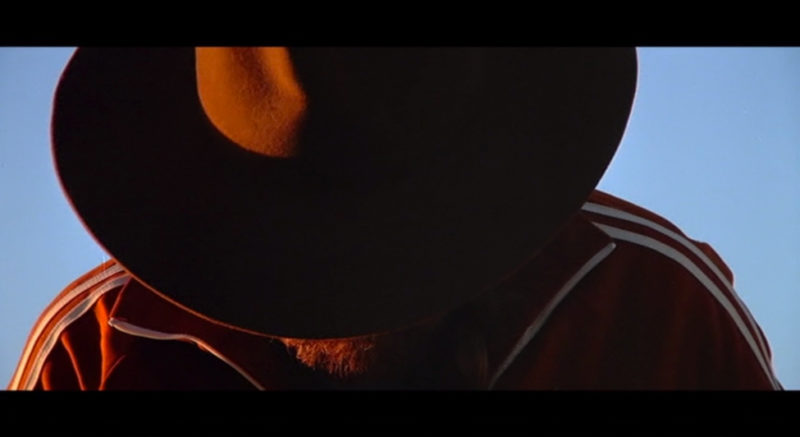
Nelson’s outlaw spirit is at the heart of the film: it’s like a feature-length country album. We see and hear most of the popular themes of the genre played out. We see how tender and loving a family can be, but we also see how infidelity can destroy the lives of those we love. It’s an entire film about love, beyond that in a country ballad. Based on Intermezzo (1936), which was then remade as Intermezzo: A Love Story (1939), one wonders if the original subtitle is a bit misleading. Honeysuckle Rose isn’t a love story in the sense of a romance, it’s a story about various interconnecting kinds of love. The love between a longtime couple, the love between friends, the thrill of a new love, and the love between kin. A significant portion of the film involves joy and celebration, from the raucous concerts to the tour bus hijinks between members of the group (featuring Nelson’s backing band as themselves).
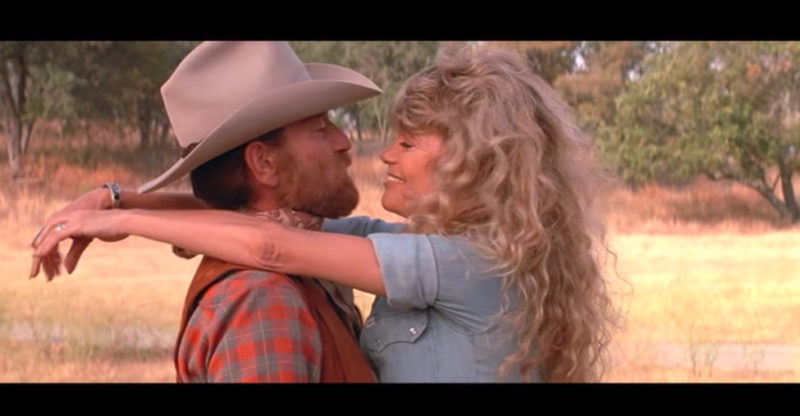
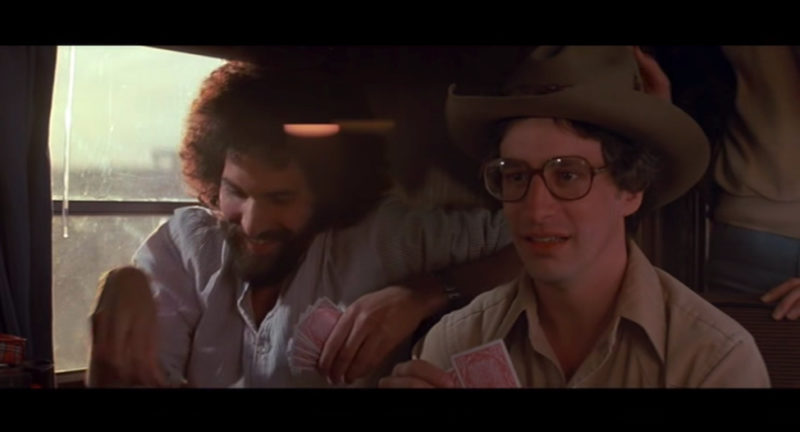
Cinematographer Robby Müller embraces a sun-kissed aesthetic to better match the warmth of the story’s themes. Müller’s camera captures the love shared across the characters. As illustrated in the above still, the emphasis on the tour bus is on a brotherly love. Schatzberg (himself a storied photographer of musicians) and Müller also embrace the rambunctious nature of concerts and accurately capture the controlled chaos of having a bunch of rowdy friends collaborating for a greater artistic purpose. The aromas of weed and beer almost waft through the screen.
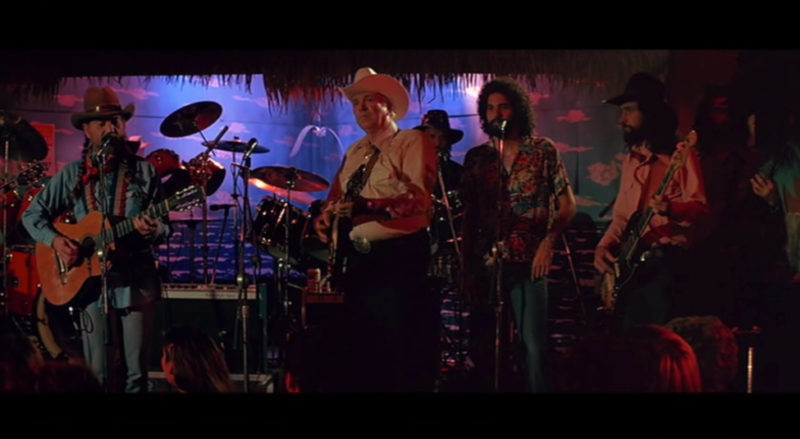
The musical sequences are more formally lit than the rest of the film, with more vivid colors and darker shadows. It gives them an intimate, stylized feeling, as if you could forget that there’s a crowd present. The audience is a faceless mass in the film—these musicians would be giving their all with or without the crowd.

One shot in particular evokes the aesthetic of Müller’s previous work in The American Friend. A drunken Nelson drives the tour bus at night with a mischievous glint in his eye and the intention of swerving between the road’s median. A green hue suffuses the frame, and the touch provides a throughline between his German work and his Hollywood efforts.
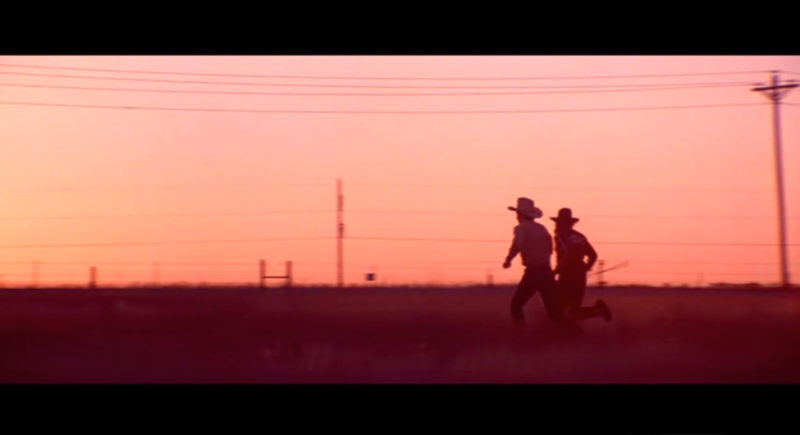
The magical natural light outside of the musical performances underlines the freewheeling behavior of both the characters and music. Honeysuckle Rose is an intimate film with very few overt moments of emotional connection. The appeal of Nelson/Buck and his band of misfits is that they have a built-in chemistry that predates the film. To paraphrase the opening song: “We’re the best of friends.” Nelson is a subtle actor, so stoic in some moments that it’s easy to project onto him what you think he should feel in any given moment. In a scene in which he’s being confronted by his wife about lechery, I watch his face and see white-hot shame in his somewhat blank expression.
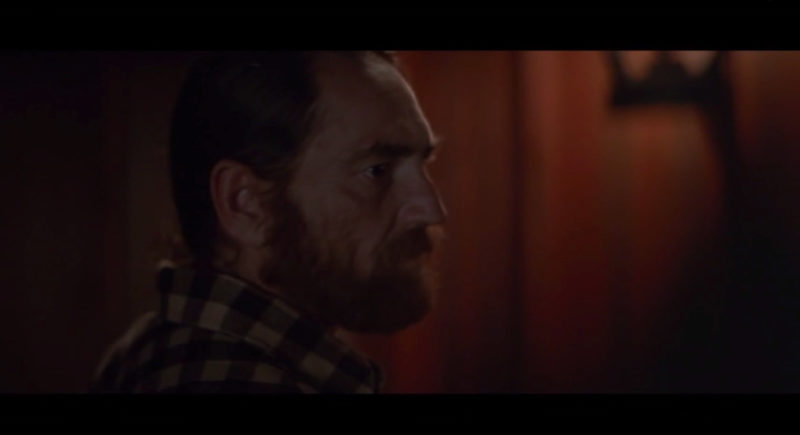
In many stories about male infidelity and life on the road, the protagonist can often feel like a wish-fulfillment fantasy but that isn’t the case here. Nelson’s protagonist is very clearly in the wrong and feels like a pathetic and broken man. He pursues the daughter of his best friend (whom he has known since her birth) and flagrantly cheats on his wife with the girl in front of their shared social circle. No movie has more effectively nailed the self-pity and turmoil of a country ballad, even if the film ends with a theoretically happy ending and sing-along. That’s hard to enjoy when you consider what will happen to Amy Irving’s character Lily, another woman used and brushed aside by a more powerful man. It’s tragic, but in an everyday way. Nelson’s song seems to serve doubly for her.
“Heaven ain’t walking a street paved with gold,
Hell ain’t a mountain of fire,
Heaven is laying in my baby’s arms,
Hell is when my baby’s not there…”– “Heaven and Hell, ” Willie Nelson
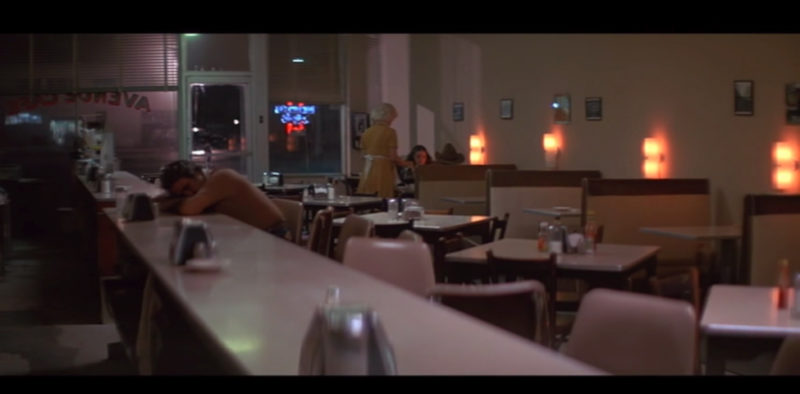
Robert Schneider is a freelance writer and critic based in New York.



